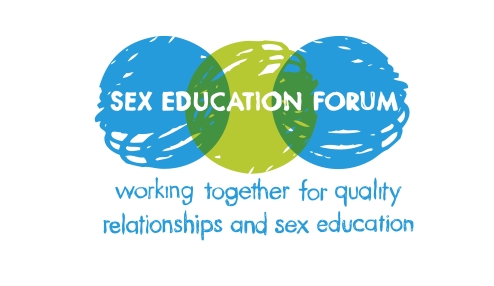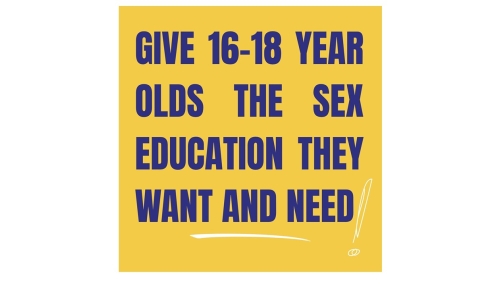This month, two new reports have shone more light on the benefits quality and inclusive Relationships and Sex Education (RSE) lessons have for young people, both in terms of mental and physical health. Our Chief Executive, Lucy Emmerson, summarizes the findings and how they help provide further evidence on the need for all young people to be accessing RSE lessons.
Department for Education report on experiences of young people
The significant physical and mental health benefits for young people receiving Relationships and Sex Education (RSE) are highlighted in a new report by the UK Government’s Department for Education about a 10 year study of young people’s RSE experiences and risk-taking behaviour.
The deep-dive report finds that young people who did not receive any RSE in schools were more likely to go on take more sexual risks, including intercourse before the legal age of consent, unprotected sex and contraction of a sexually transmitted infection (STI) - of which young people still account for around half of all new STI diagnosis in England.
Just under half of young people described the RSE they received at school as either ‘fairly useful’ or ‘very useful’. However, nearly one in five young people described the RSE received in school as 'not at all useful'. This chimes with findings from the Sex Education Forum’s young people’s RSE Poll 2019.
The report also highlights inequalities for young people who are eligible for free school meals, with 1 in 10 young people in this group not learning about STIs, consent, LGBT relationships or relationships in general in their school RSE. This is higher compared to young people who were not free school meals-eligible (nearly one in 20).
While, young people identifying as lesbian, gay, bisexual or sexual orientation other than heterosexual were more likely to say their school RSE was ‘not at all useful’.
International report on RSE
The report published by the Department for Education coincides with a new global report from UNESCO, UNAIDS, UNFPA, UNICEF, UN Women and WHO on the state of RSE worldwide. While the report states that laws and policies supportive of RSE are in place in many countries, there remain significant challenges in the development and implementation of RSE. The report recommends clear budgets to ensure implementation of mandatory policies, and investment in teacher training.
This is further evidence of the significant importance placed on RSE in addressing immediate challenges on health inequalities, child safeguarding and violence against women. Sex Education Forum continues to work with international RSE stakeholders so we can share the latest evidence and best practice for our Partners in England.
Time to step up the implementation of RSE
Sex Education Forum remain concerned about the under-investment in training for schools in England to provide high quality, evidence-based RSE. Teachers must feel confident and supported to deliver lessons on a subject that can have such a profound impact on young people’s lives. We urge Ministers to explain why only one in five schools have received UK Government funded training to implement RSHE, and to take a fresh look at their approach. This involves responding to the needs of schools and teachers, children and young people and ensuring that the opportunity is taken now to provide the quality of RSE that is so urgently needed to promote and protect the health of young people.
This comes as a new Vice News report warned that RSE is not being taken seriously enough by Ministers. Figures obtained by Vice News found that of the 20,000 state-run schools in England, teacher training modules covering issues such as consent have only been downloaded a few thousand times since being published last year.
Without immediate interventions to step up the implementation of RSE, we risk continuing to let down young people - despite the overwhelming evidence of the health benefits of these lessons.
Sex Education Forum will continue to make the case to Ministers and work in collaboration with our partners and wider RSE educators to make the voices of young people heard in the corridors of power to guarantee quality, inclusive and up-to-date RSE lessons are a reality in all schools.
Lucy Emmerson
Chief Executive
Sex Education Forum
References
UNESCO, UNAIDS, UNFPA, UNICEF, UN Women and WHO (2021) The journey towards comprehensive sexuality education: global status report
Sex Education Forum (2019) Young People's RSE Poll
Department for Education (2021) Longitudinal Study of Young People in the UK
Vice News (2021) Sex Education not being taken seriously in England by Sophia Smith Galer




Share